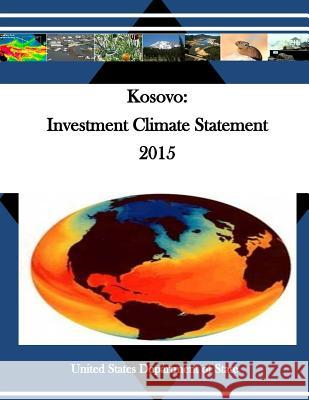Kosovo: Investment Climate Statement 2015 » książka
Kosovo: Investment Climate Statement 2015
ISBN-13: 9781530701001 / Angielski / Miękka / 2016 / 24 str.
Kosovo: Investment Climate Statement 2015
ISBN-13: 9781530701001 / Angielski / Miękka / 2016 / 24 str.
(netto: 56,43 VAT: 5%)
Najniższa cena z 30 dni: 55,53 zł
ok. 13-18 dni roboczych.
Darmowa dostawa!
The Republic of Kosovo declared independence from Serbia in 2008. Kosovo's neighbor to the north, Serbia does not recognize it as a sovereign state, but has begun to normalize relations in accordance with the Brussels Agreement of April 2013. With a population of 1.8 million and land area 6,765 square miles, landlocked Kosovo is considered Europe's poorest country, yet it does have some mineral and coal deposits. Kosovo's official unemployment rate is 30.9 percent, although some estimates are as high as 45 percent. In an effort to foster economic development, the Government of Kosovo (GoK) has implemented reforms to improve the investment climate, prompting improved rankings in the World Bank's Doing Business reports from 81 (2014) to 75 (2015). Kosovo is continuing efforts to transform its socialist legacy to a market-oriented economy, and the GoK is working to strengthen the legal environment necessary to attract and retain foreign investment. Corruption, practiced and perceived, and a lack of contract enforcement create high barriers to foreign investment. According to the World Bank, Kosovo's economy is characterized by: limited integration into the global economy; the success of its Diaspora in foreign labor markets, resulting in a steady stream of remittances; pro-growth budgetary priorities; and continued international financial support. Vocal political opposition to the government's privatization policies, corruption, political or self-interested interference by government officials, disagreements over asset ownership between Kosovo and Serbia, and unreliable energy supply increase the risk and cost of investments in Kosovo. Despite these challenges, Kosovo's relatively young population, low labor costs, and abundant natural resources have attracted foreign investment, with several international firms and franchises already present in the market. There are opportunities for U.S. businesses to invest, especially in the food, IT, infrastructure, and energy sectors. The newly-elected government is seeking to further improve the business climate through the adoption of a multi-year development program focused on providing incentives for economic growth. These include amendments to tax and foreign investment legislation. The banking sector in Kosovo is stable and liquid, but high interest rates stifle commercial endeavors, prompting the government to enter into credit-guarantee arrangements with international donors to improve access to credit for businesses.











